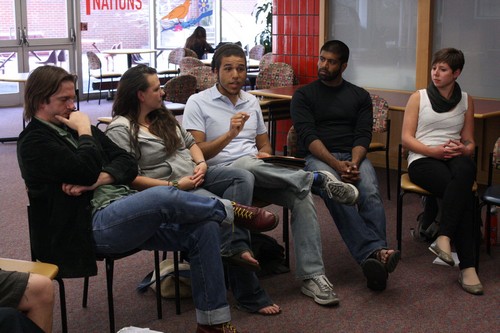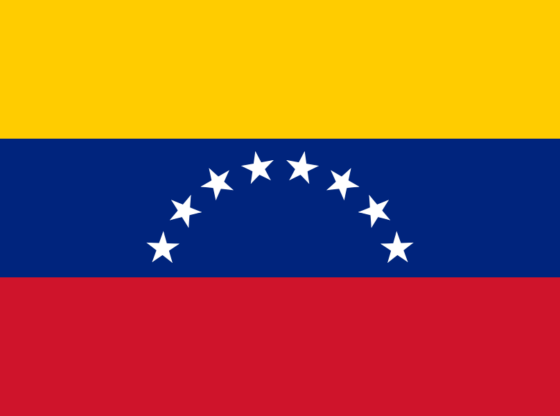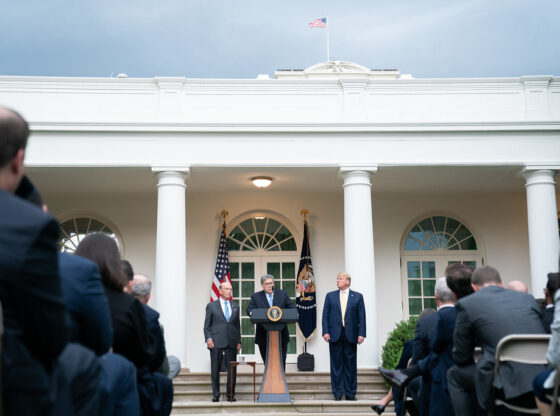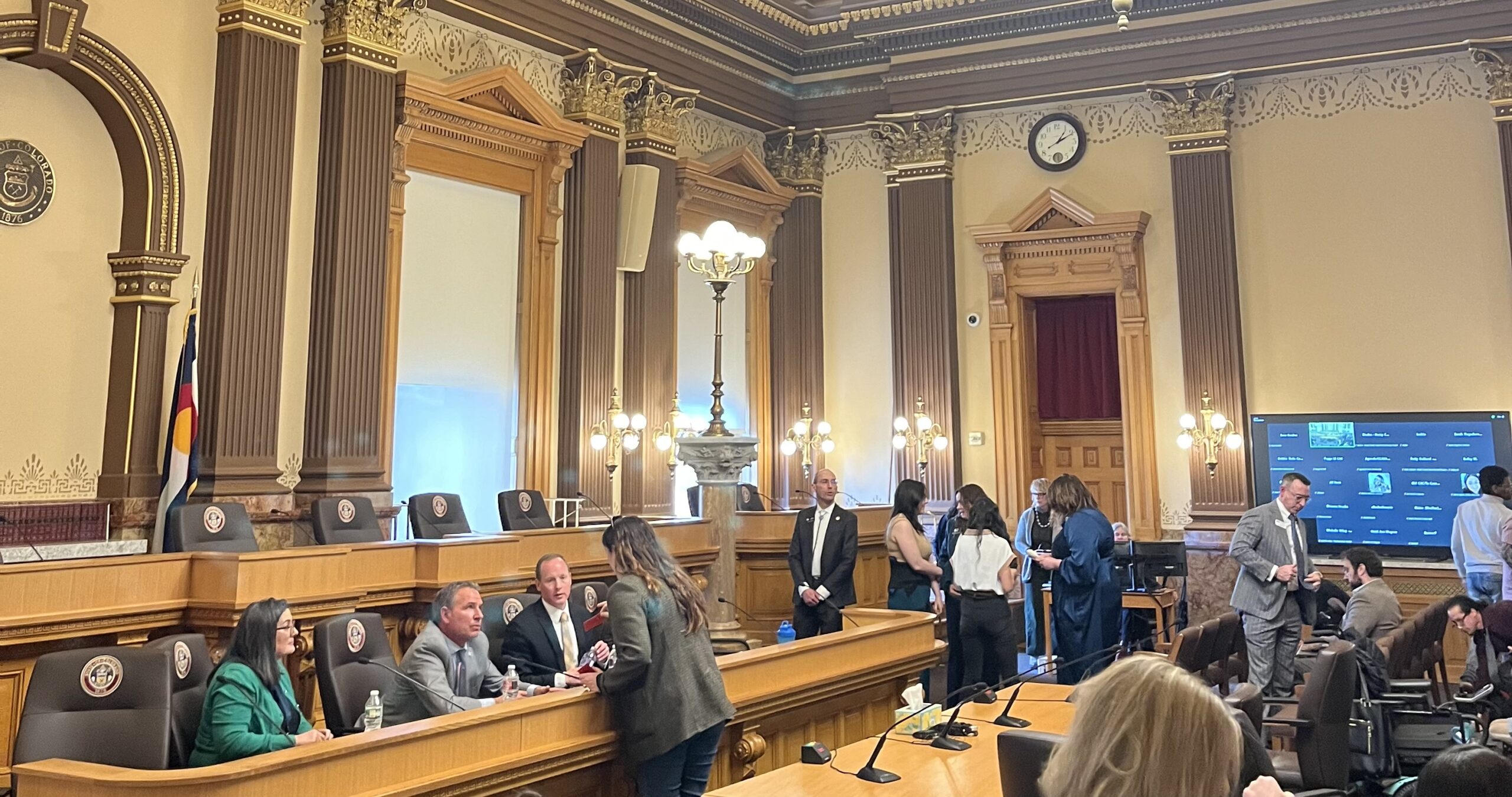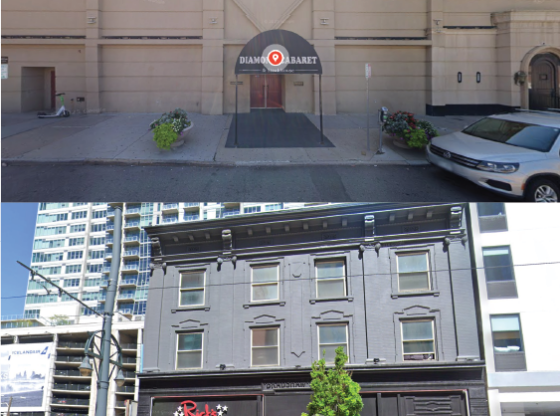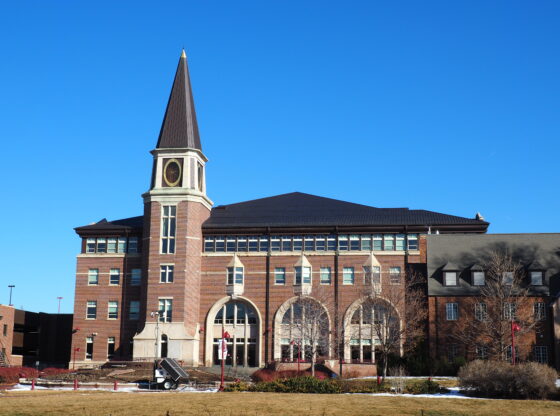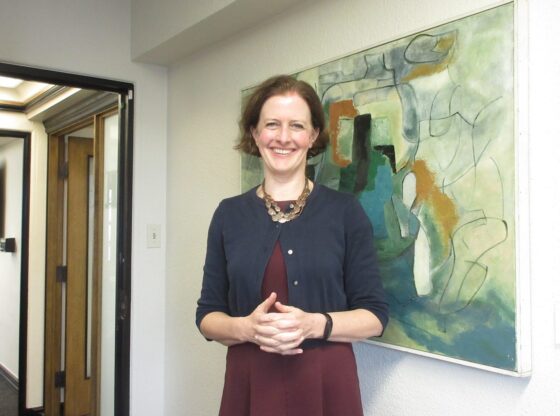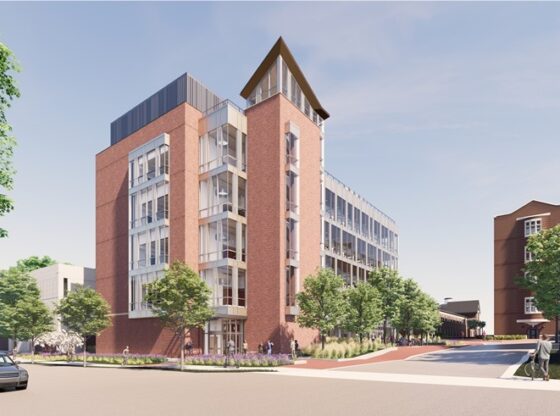 Photo by: Jill Hamilton
Photo by: Jill Hamilton
Leaders and members of Occupy DU, the university branch of the Occupy Denver movement, discussed the challenges of overcoming the apathy “bubble” on campus to mobilize support in a discussion panel held last Thursday evening in Driscoll.
The panel, which was attended by approximately 20 students, staff and faculty was called “What is Occupy Whining About?” and was aimed to bring forward concerns and questions from the public about the strategies and missions of the Occupy movement.
The panel was the first event of the spring for Occupy DU. Sajay Menon, a Korbel graduate student studying International Relations said Occupy DU is in the process of planning more, such as teach-ins on various issues, including gender and corporate culture and human trafficking. Menon also helps initiate and run events for Occupy DU.
The panelists all agreed the most difficult part of building an Occupy group on campus has been finding student support.
“Lots of people really live in a bubble. I know I do,” said Menon. “The campus itself is a bubble. If people were able to get off-campus more and see the suffering out there, they might be more willing to get involved.”
The group discussed possible solutions to the problem of student awareness and involvement, particularly the use of one-on-one conversations, which they feel are most effective in getting people involved.
The rest of the panel focused on questions about the handling of Occupy, its goals, rhetoric, media representation and strategy.
“We were trying to bring out as many critical voices as possible,” said Menon. “We hoped to bring people to question us and expected to receive a lot of difficult questions.”
Menon was one of the four panelists at the event who answered the questions of the attendees. The other panelists included Rashawn Bliss, Emily France and Michael Neil, graduate students who have been with the campus movement since it began.
Menon said the current members of the group had created the event with a hope of having a “good discussion” on what Occupy is as a movement and to address “some of the common misconceptions.”
He said while he felt the panel did not draw the controversy they aimed for, the group still engaged in a good discussion.
The hosts focused on emphasizing the importance of the Occupy movement so far and the successes they had seen to draw more support on DU’s campus.
They said while they understood the criticism of the movement, there were a lot of groundbreaking accomplishments and changes they feel the media and the public tend to overlook when discussing Occupy, such as the support the movement has garnered and the fact that it has remained despite strong opposition and negative media coverage.
Panelist Bliss said people gave the Occupy movement “too much” and “not enough” credit. He said this led to expectations for success from the public were too high as well as a portrayal of their accomplishments as underwhelming.
According to Menon, professor support and assistance is a big part of Occupy DU’s success on campus, and they hope to have further involvement in the future. He said professors have been very receptive to speaking at discussion, debates and panels.
The group will focus primarily on campus involvement from students, and will be centering its events and discussions around issues at DU which are connected to and correspond with larger issues being presented by the state and nationwide Occupy movement. They believe this will help build student interest and involvement.
“When they feel the power of being one of thousands marching with people for a single cause they’re hooked,” said Bliss. “It’s about getting them there once.”

